KAMAKA
Kamaka Tenor 6ST White Label 1970s
Kamaka Tenor 6ST White Label 1970s
Couldn't load pickup availability
Out of stock
A beautiful vintage 1970's Kamaka 6-string tenor ukulele!
KAMAKA UKULELE has a history spanning over 100 years on the island of Oahu in Hawaii and has supported ukulele culture.
It is a long-established manufacturer that is unrivaled among existing ukulele manufacturers.
It can be said that their products set the standard for all ukuleles.
This tenor 6-string ukulele has a Hawaiian Koa body, a Hawaiian Koa neck, and a Hawaiian Koa fingerboard and bridge, making it a golden-era specification. There is a white manufacturer's label on the inside of the body, which defines it as a white label period. It is a 6-string specification with 1st and 3rd strings that are double strings in an octave, giving it an exotic Hawaiian sound. Please watch the video to hear the fascinating sound.
It has a semi-gloss paint finish. It is a used item that is in beautiful condition with few scratches and a glossy finish. The neck has a slight forward bow, but the action is kept low for a vintage guitar at about 2.7mm.
Equipped with original Schaller gear tuners.
The current selling price for a new one is 297,000 yen (tax included), so it's a great deal.
Body: Tenor body; Solid Hawaiian Koa Neck: Hawaiian Koa Fingerboard: Hawaiian Koa Bridge: Hawaiian Koa Nut & Saddle: Ebony Nut width: 36.5mm
Scale: 432mm
Pegs: Original Schaller Gear Pegs
Sales price: ¥140,000 (excluding tax)
With chipboard case
Share
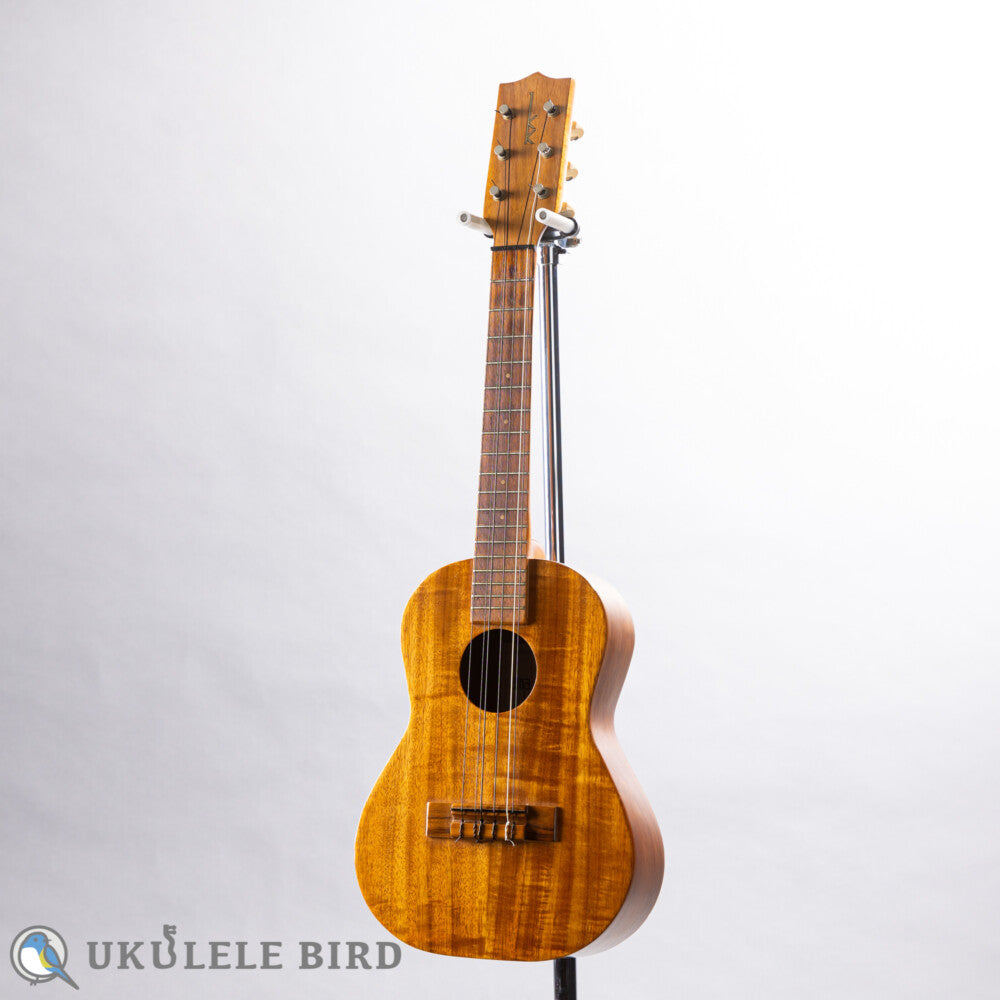
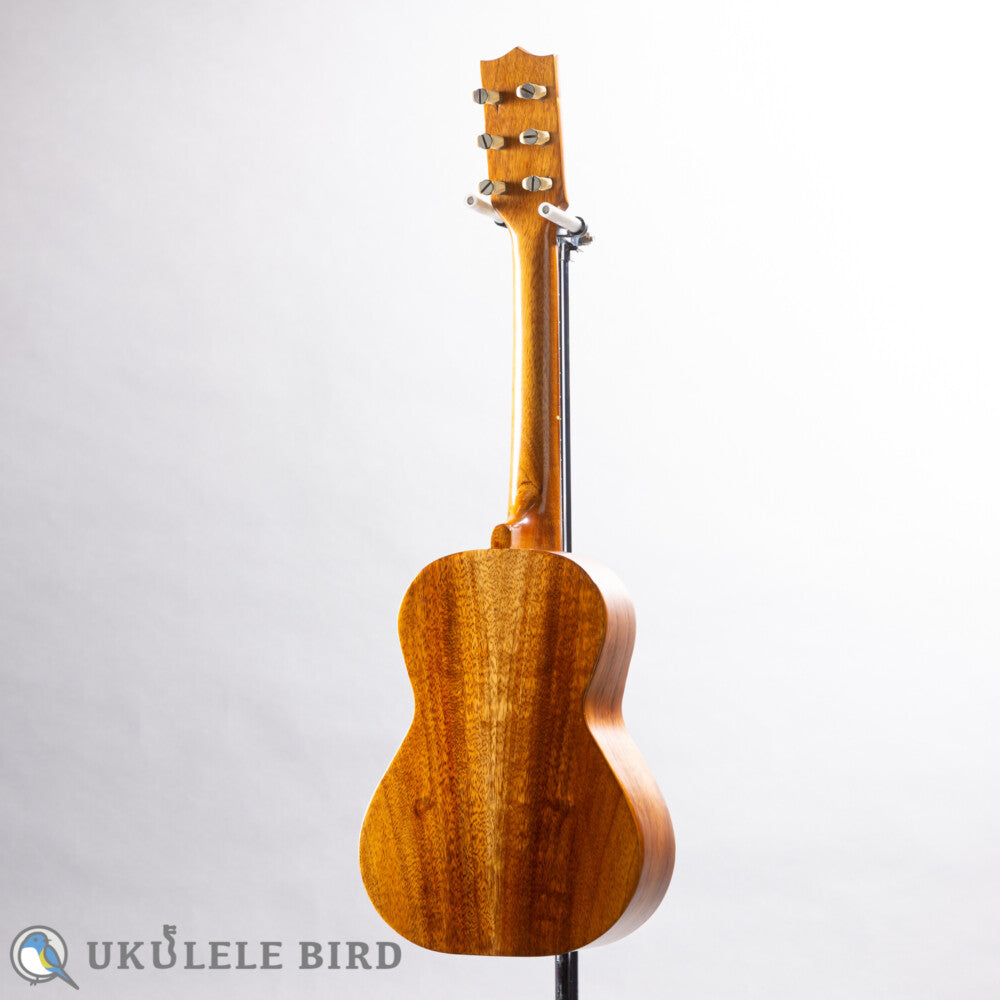
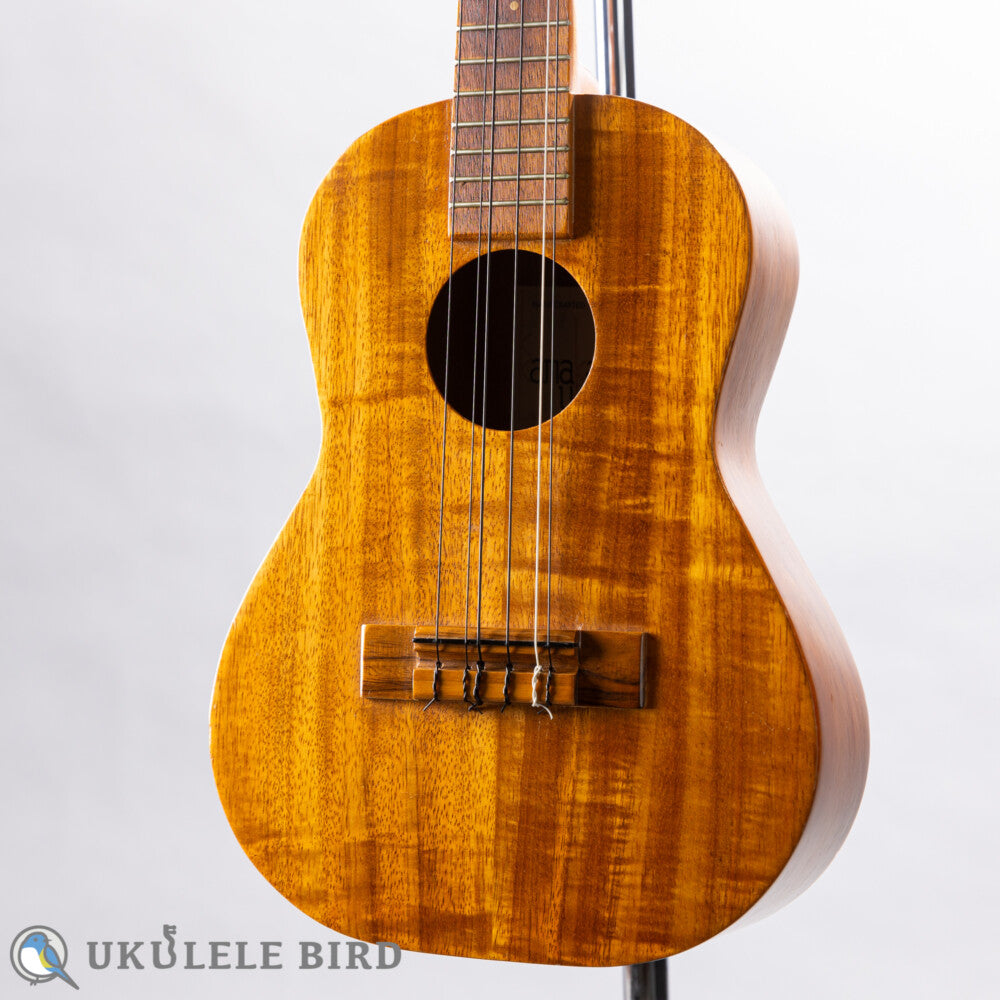
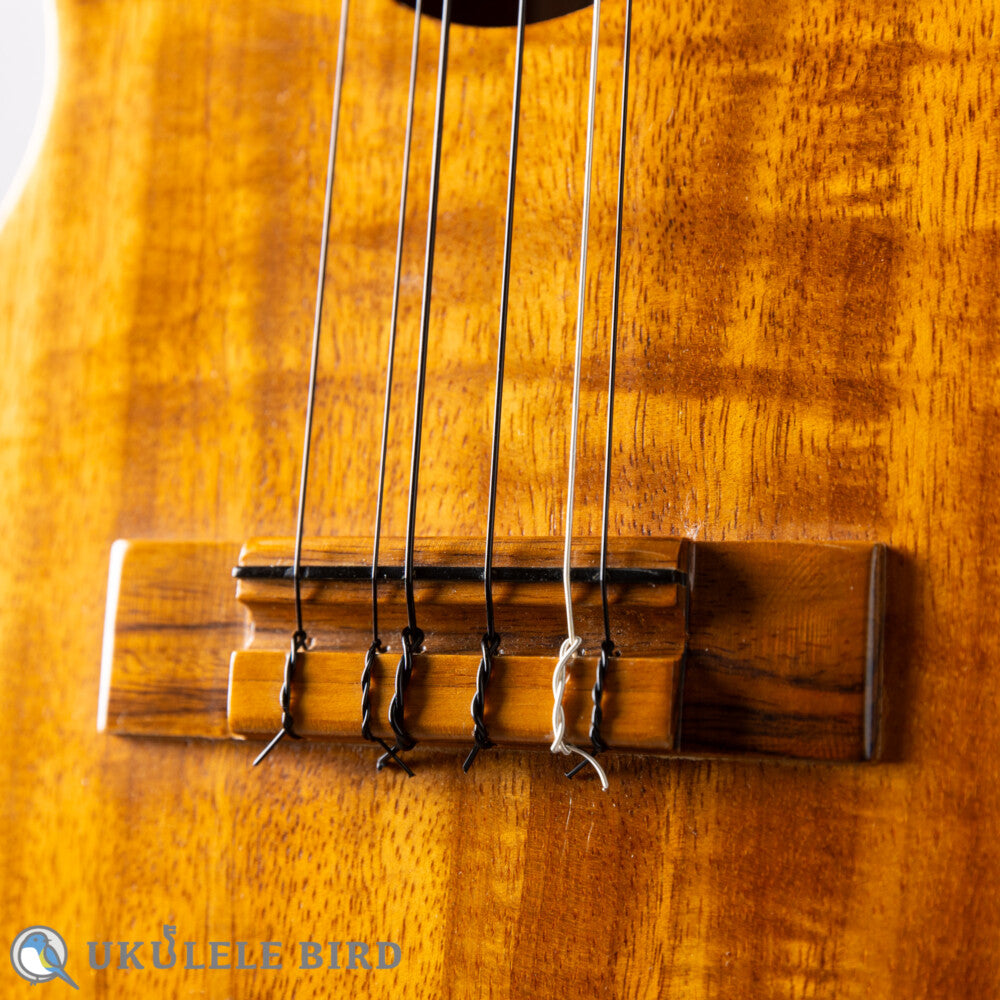
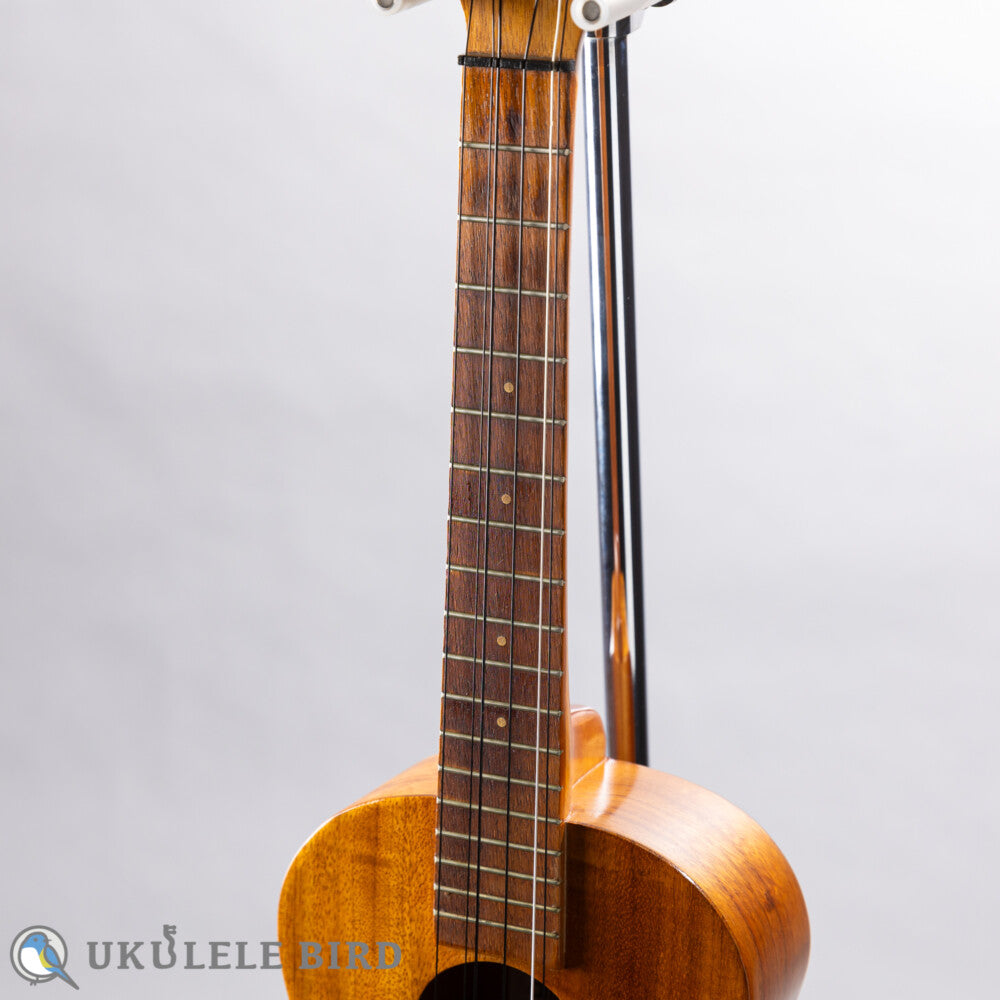
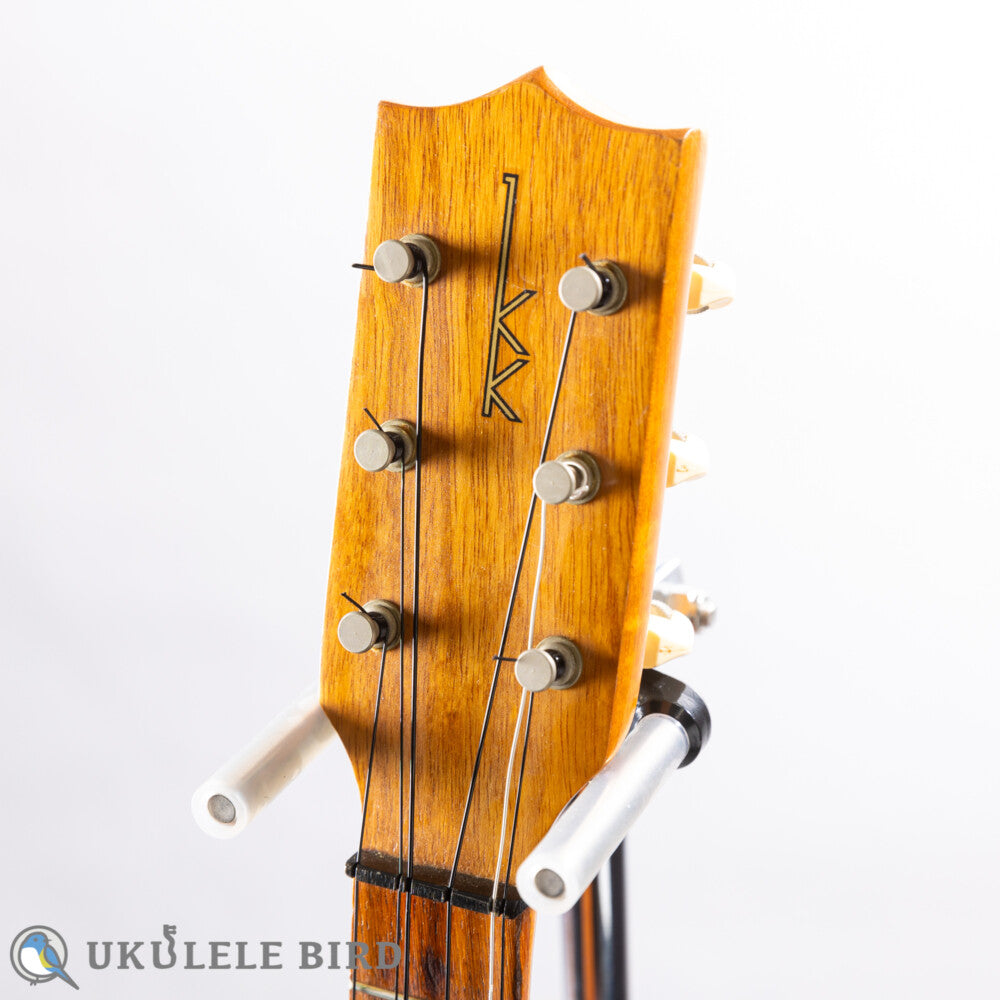
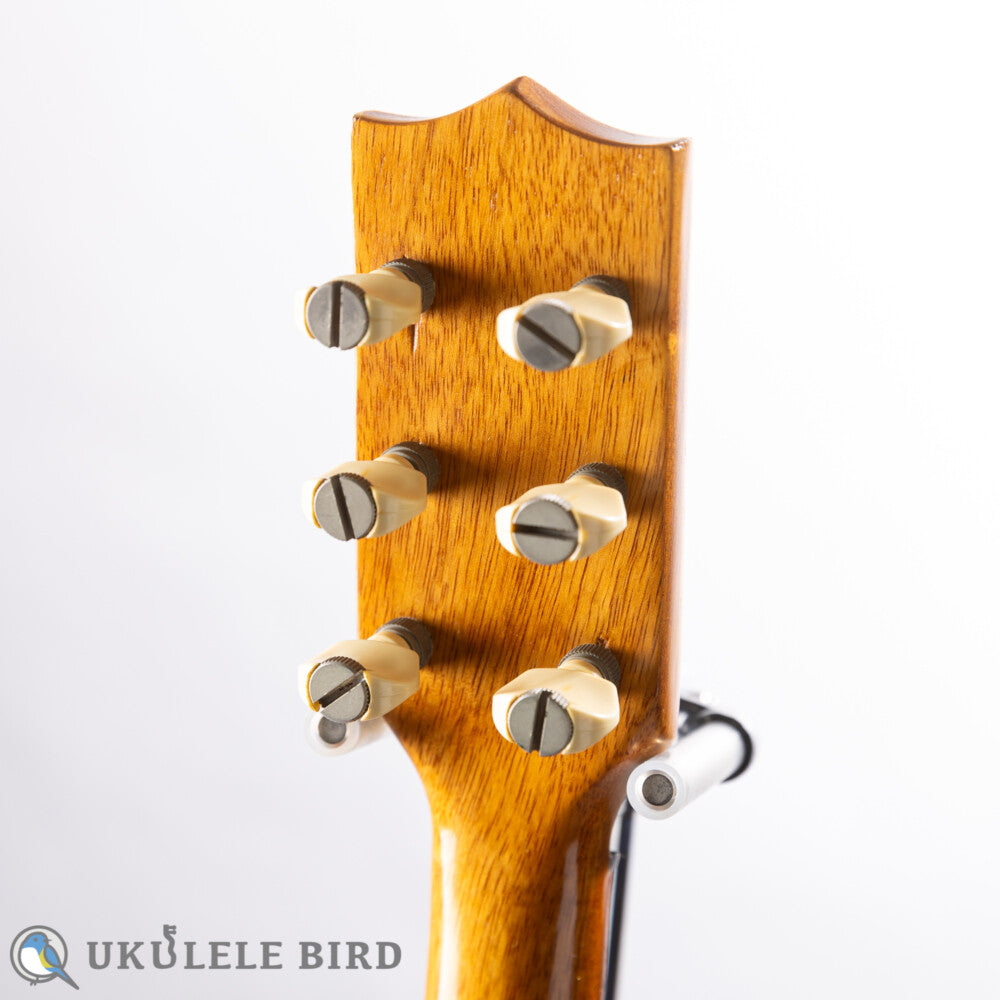
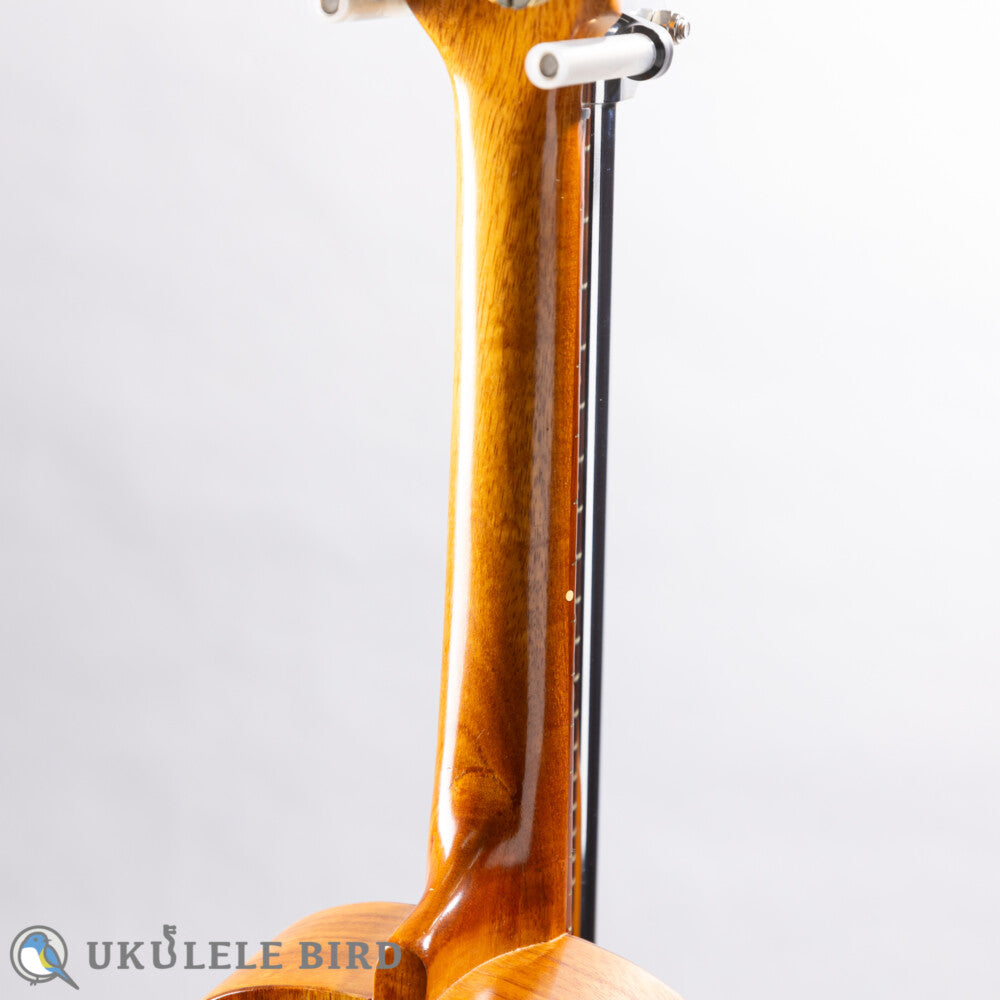
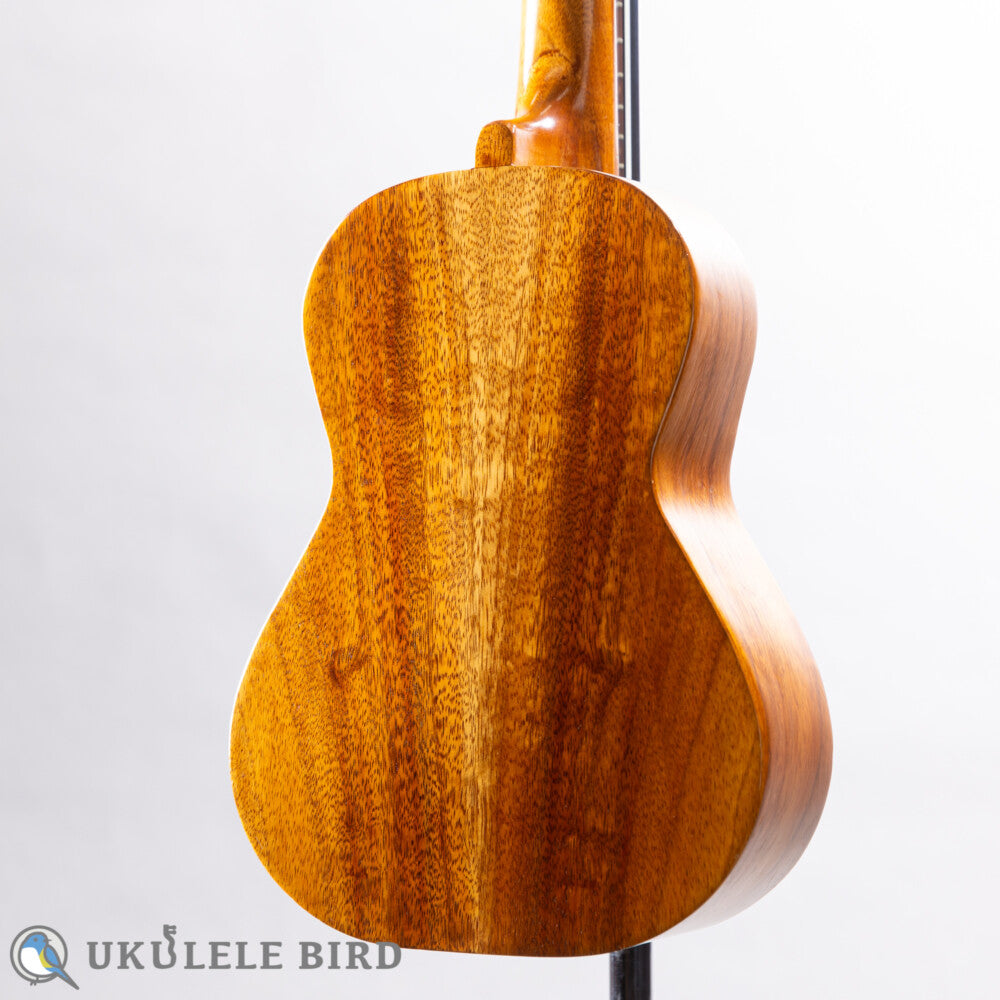
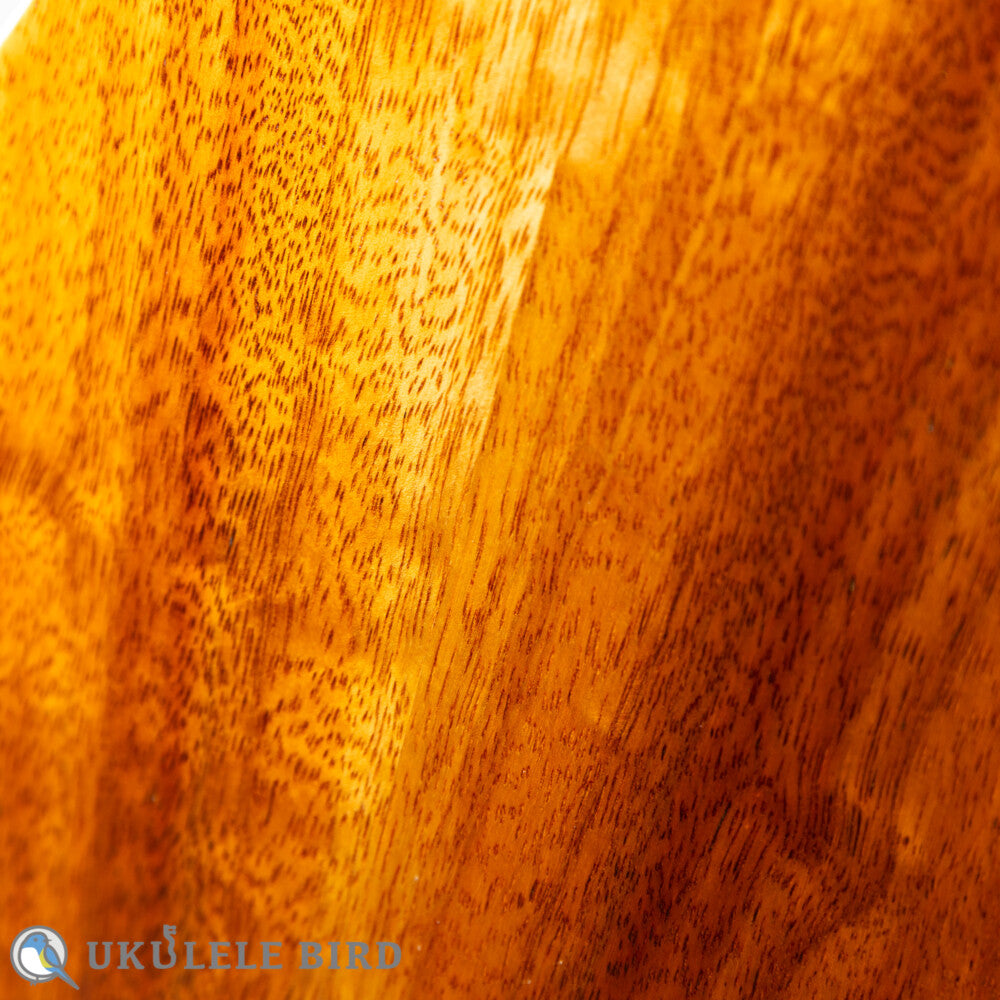
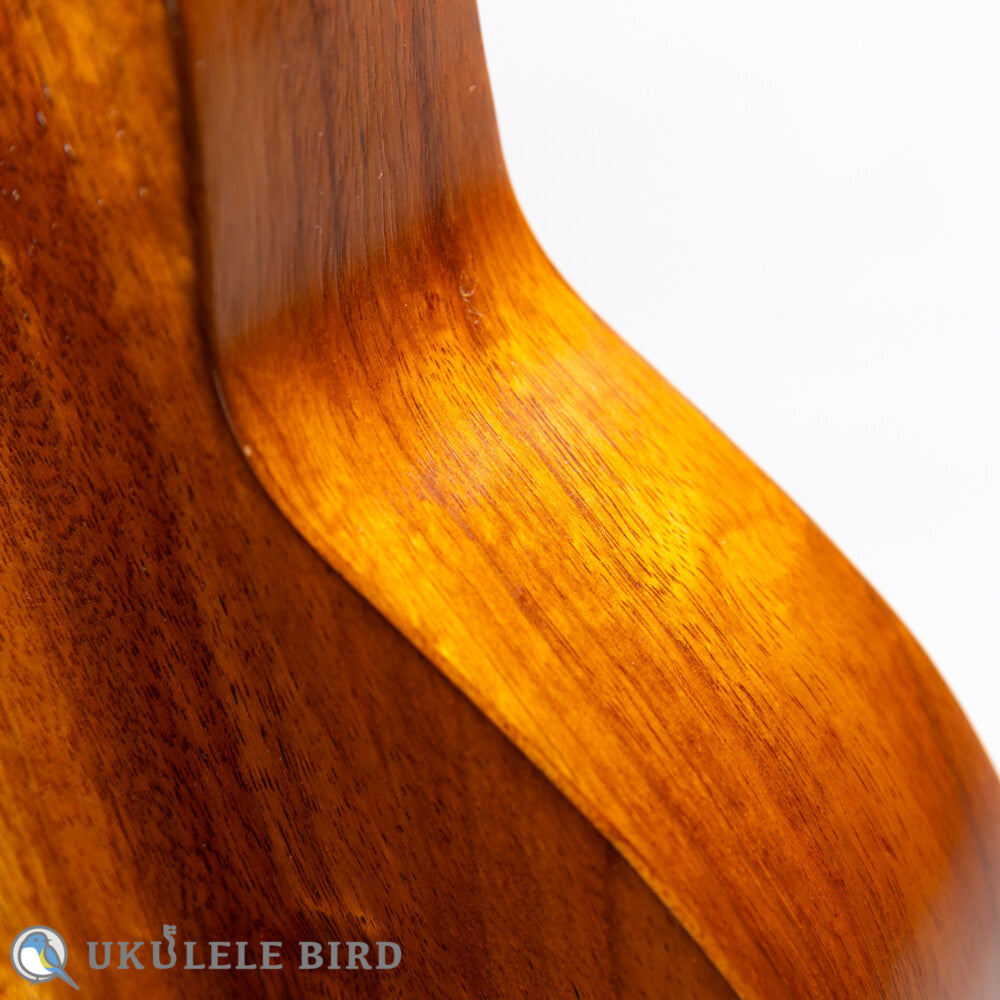
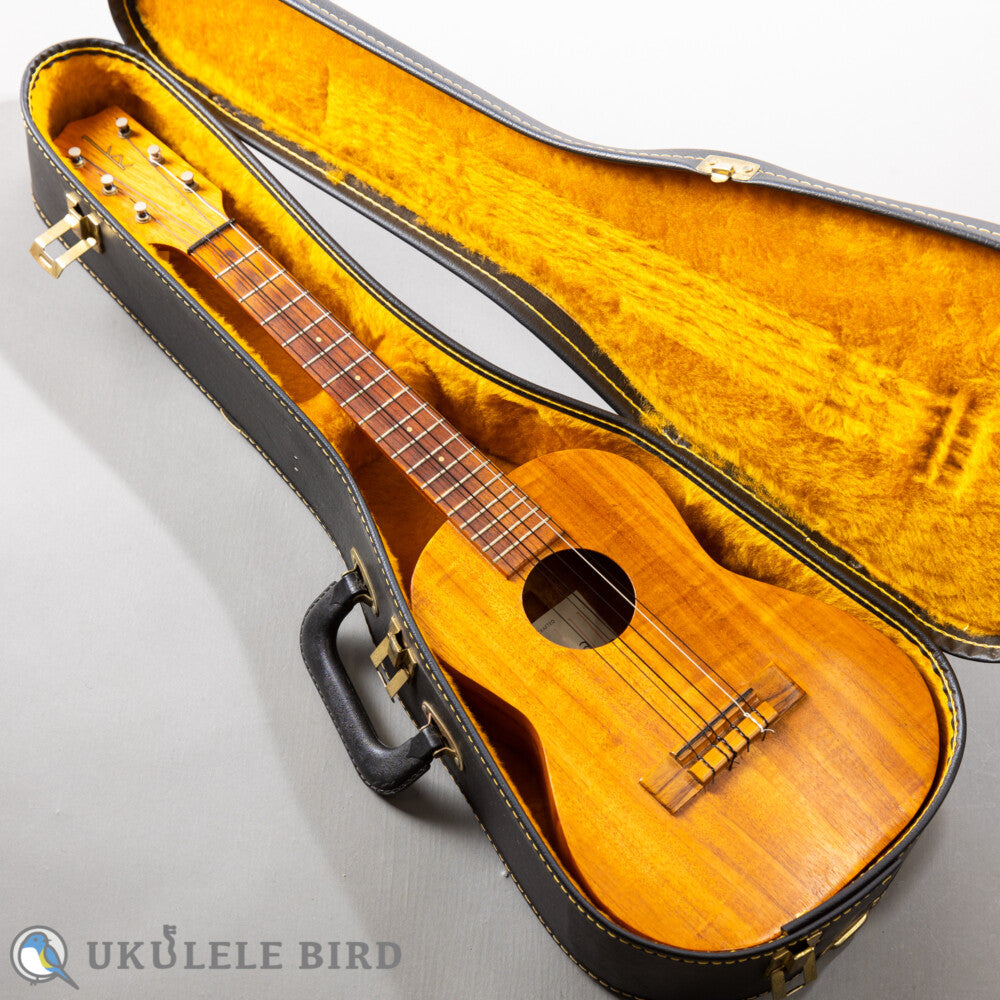
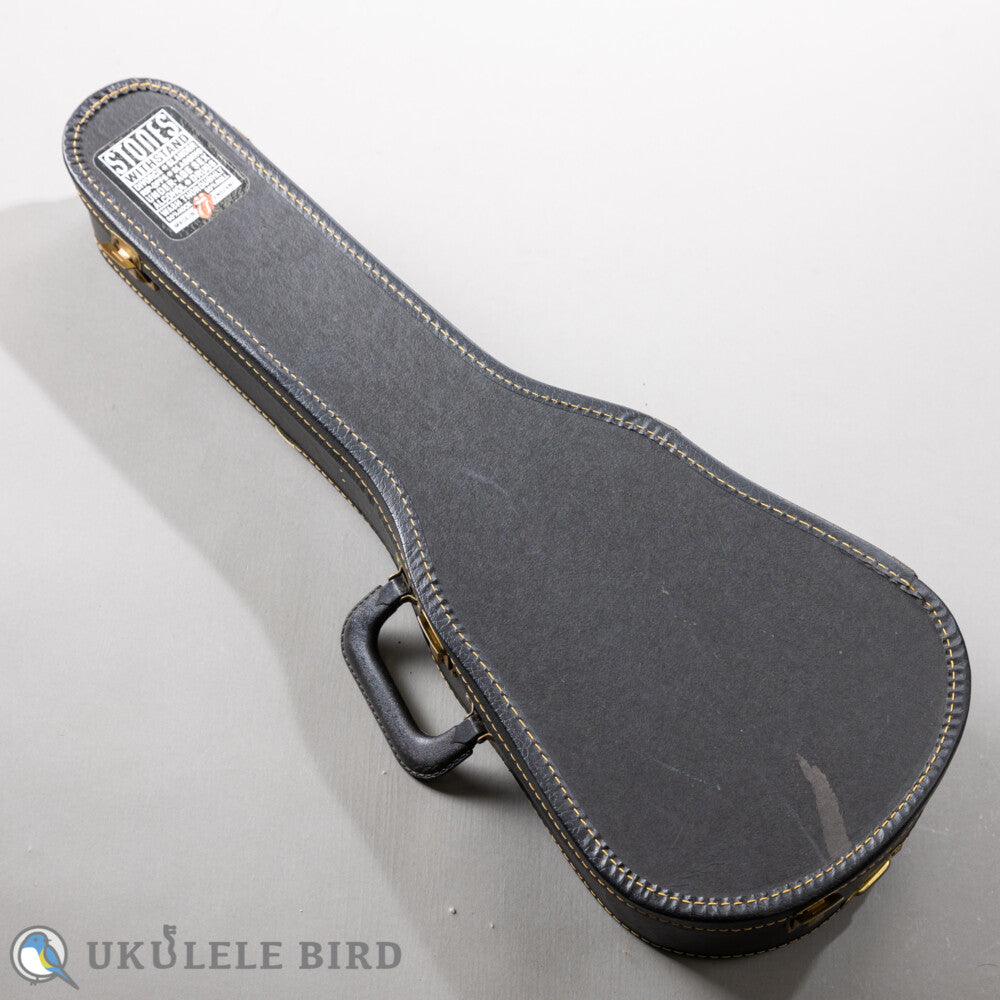
KAMAKA
Kamaka Ukulele was founded in 1916. It is the oldest ukulele manufacturer still in existence in Hawaii. It is now synonymous with the ukulele and is also known as the "King of Ukuleles," and has established an unshakable position as one of the world's top manufacturers. The techniques and spirit cultivated in Hawaiian culture have been passed down without being lost even now, 100 years later.
They have received tremendous support from famous artists across countries and generations, including Eddie Kamae, Ota San (Herb Ota), Jake Shimabukuro, and in Japan, Kazuyuki Sekiguchi (Southern All Stars), Rio, and Toshiki Kondo, and the sounds they create are still heard all over the world today.














